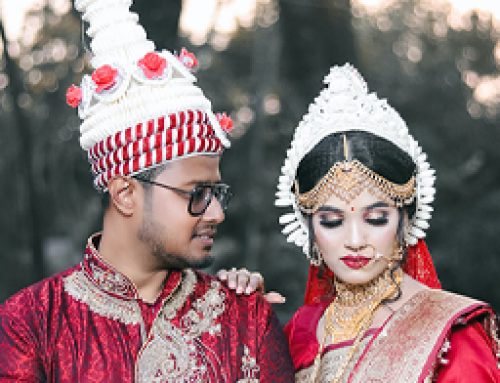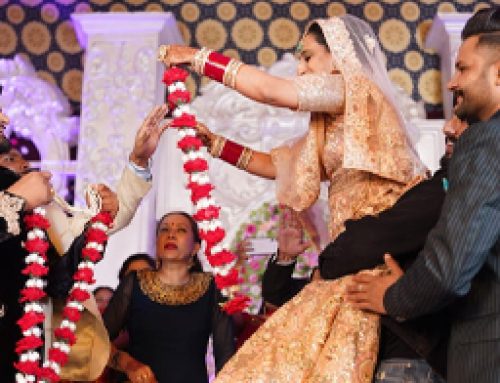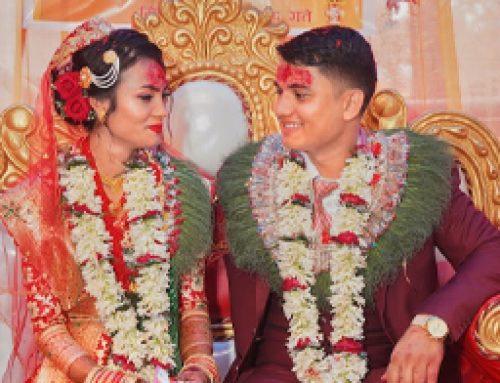Hindu Traditions & Hindu Wedding Rituals and Customs
Hinduism, one of the world’s oldest religions, is rich in culture and traditions that have been passed down through generations. These traditions encompass various aspects of life, including weddings. Hindu weddings are elaborate and vibrant ceremonies that bring together families, communities, and religious customs. In this essay, we will explore the essence of Hindu traditions and delve into the intricacies of Hindu wedding customs, rituals, and significant words associated with them.

Hindu Traditions
Hinduism is a complex and diverse religion with a multitude of traditions. It is characterised by its emphasis on rituals, spiritual practices, and the pursuit of self-realization. The foundation of Hindu traditions lies in the Vedas, the ancient scriptures that guide the religious and social lives of Hindus. The Vedas contain hymns, prayers, rituals, and philosophical teachings that form the basis of Hinduism.
Worship and Rituals:
Worship plays a central role in Hindu traditions. Hindus engage in various forms of worship, from daily rituals in the home to grand temple ceremonies. Puja, the act of offering prayers and devotions to deities, is a common practice. Temples are considered sacred spaces where individuals can connect with the divine through prayer, offerings, and participation in religious festivals.
Festivals:
Hinduism is renowned for its numerous colorful festivals celebrated throughout the year. Diwali, Holi, Navaratri, and Raksha Bandhan are just a few examples. These festivals mark significant events or honor specific deities and are characterised by vibrant decorations, music, dance, and feasting. They provide a platform for communities to come together, reinforce social bonds, and express devotion.
Karma, Dharma, and Moksha:
Central concepts in Hindu traditions include karma, dharma, and moksha. Karma refers to the law of cause and effect, where actions have consequences that affect future lives. Dharma encompasses one’s moral duties, responsibilities, and righteous conduct based on social and cosmic order. Moksha represents liberation from the cycle of birth and death, achieved through self-realization and union with the divine.
Hindu Wedding Customs
Hindu weddings, known as Vivaha or Vivaah, are multi-day ceremonies filled with rituals and symbolism. These weddings reflect the values, traditions, and religious beliefs of the families involved. Let’s explore some of the essential customs and rituals associated with Hindu weddings.
Pre-Wedding Rituals:
Before the wedding, there are several pre-wedding rituals that take place. These include engagement (sagai), the exchange of gifts, the Mehndi ceremony (applying henna designs on the bride’s hands and feet), and the Haldi ceremony (where turmeric paste is applied to the bride and groom for purification and glowing skin).
The Wedding Ceremony:
The wedding ceremony itself is a grand affair, conducted according to Vedic rituals. It involves the bride, groom, their families, and a priest. The ceremony takes place under a decorative canopy known as the Mandap. Key rituals include the Kanyadaan (giving away the bride by her father), the Mangal Sutra (tying of a sacred necklace by the groom around the bride’s neck), and the Seven Vows (the couple taking seven vows symbolising their commitment to each other).
Post-Wedding Rituals:
Following the wedding ceremony, there are various post-wedding rituals. These include the reception, the Grihapravesh (welcoming the bride into the groom’s home), and the Vidaai (farewell of the bride from her parents’ home). These rituals are filled with emotions and signify the bride’s transition from her parental home to her husband’s home.
Hindu Wedding Words
Hindu weddings are infused with meaningful words and phrases that hold significance in the ceremony. Let’s explore some of these essential wedding words:
Mantra:
Mantras are sacred chants or prayers recited during Hindu ceremonies. These mantras invoke the blessings of deities and seek their presence and guidance during the wedding rituals.
Saptapadi:
Saptapadi is a crucial moment in the wedding ceremony where the couple takes seven symbolic steps together around a sacred fire. With each step, they make promises to each other, pledging to fulfill their responsibilities and support each other throughout their married life.
Mangal Sutra:
The Mangal Sutra is a sacred necklace worn by married Hindu women. It symbolises their marital status and is presented to the bride by the groom during the wedding ceremony.
Kanyadaan:
Kanyadaan is the act of giving away the bride by her father. It is a poignant moment where the father entrusts the bride’s care and happiness to the groom, symbolising the transition from her father’s family to her husband’s family.
Ashirvada:
Ashirvada refers to the blessings bestowed upon the couple by the elders and the priest. These blessings are believed to bring good fortune, happiness, and a prosperous married life.
Hindu traditions and Hindu wedding customs are deeply rooted in the rich heritage and spirituality of Hinduism. These traditions emphasise the importance of rituals, family bonds, and spiritual values. Hindu weddings are a vibrant blend of customs and rituals, symbolising the sacred union of two individuals and their families. The use of meaningful words and phrases adds depth and significance to these ceremonies, further enriching the experience. Through their continued practice and preservation, Hindu traditions and weddings continue to thrive, fostering a sense of unity, devotion, and cultural pride among Hindus worldwide.
The Perfect Venue For Your Hindu Wedding Celebration in Melbourne
Seasons5 offers a vibrant atmosphere and Indian wedding venues along with dedicated staff to help you on your big day. Nestled in the lush greenery of Point Cook, Melbourne we’ve got luxurious accommodations too. Our private lake and waterfall make for a picturesque scene for your Hindu wedding.
Crafted with local and fresh ingredients, our Cinnamon Bay Restaurant offers delicious meals for wedding celebrations. You can also enjoy our day spa to relax and rejuvenate. Feel free to call us on 038376 5300 or drop an email at contact@seasons5.com for more information.








